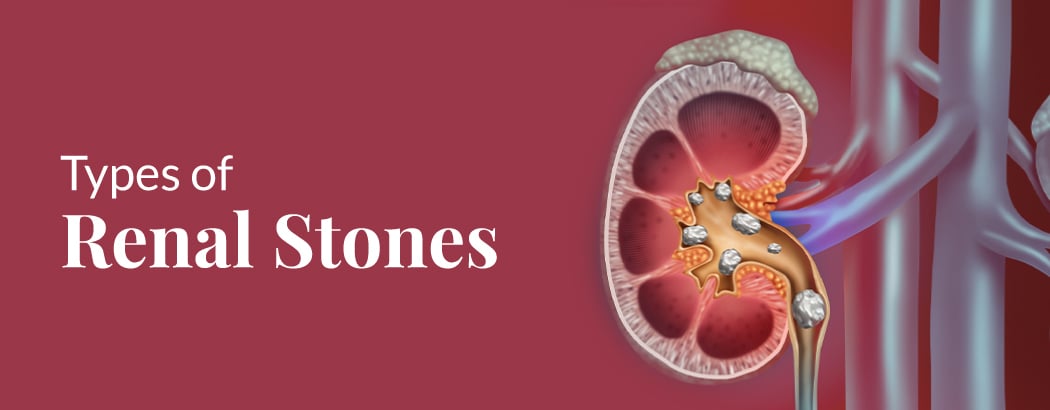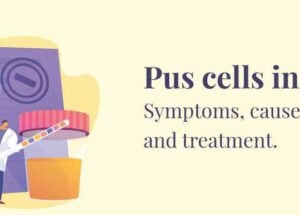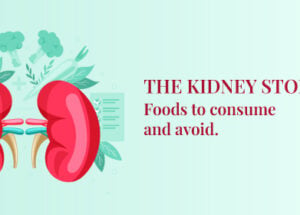Swelling or Pain in Scrotum
Swelling or pain in the scrotum is one of the common reasons why patients see an urologist. Many times, it may coexist
Causes
Causes of painless scrotal swelling
- Hernias
- Hydroceles
- Varicoceles
- Other causes
- Idiopathic scrotal edema in children
- Testicular Cancer
- Congestive Heart Failure (CHF) or liver failure
- A cyst in the epididymis (spermatocele)
- A collection of blood in the scrotum (hematocele)
Causes of painful scrotal swelling
- Testicular torsion
- Epididymitis and orchitis including mumps
- Injuries
- Allergic reactions
- Insect bites
- Henoch -Schönlein purpura
Hydrocele- A collection of fluid in the scrotum
A hydrocele is a disorder in which fluid collects between layers of tissue that surround the testis.
Hydrocele is common in newborns and usually disappears without treatment by age 1. Older boys and adult men can develop a hydrocele due to inflammation or injury within the scrotum.
A hydrocele usually isn’t painful or harmful and might not need any treatment. But if you have scrotal swelling, see your doctor to rule out other causes.
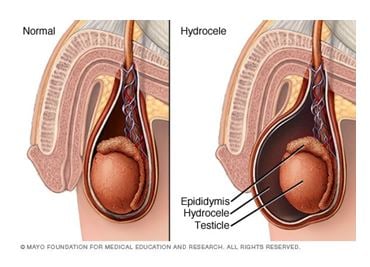
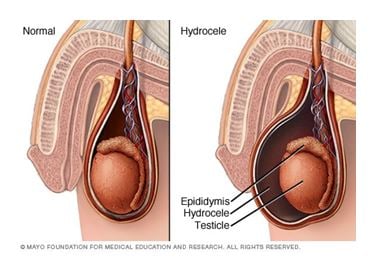
Hydrocele and inguinal hernia are the most common causes among boys. Up to 20% of men have a varicocele, which can cause infertility.
Hernia
An inguinal hernia occurs when tissue, such as part of the intestine or fat called omentum, protrudes through a weak spot in the abdominal muscles. The resulting bulge can be painful, especially when you cough, bend over or lift a heavy object. If it happens in the groin region it is called inguinalhernia.
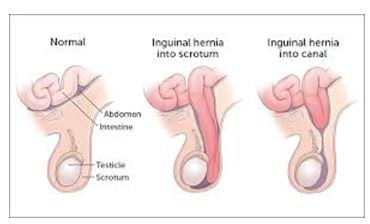
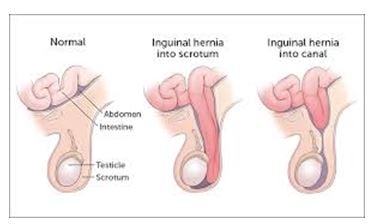
Varicocele – Widening of the veins that carry blood from a testis
A varicoceleis an enlargement of the veins within the loose bag of skin that holds your testicles (scrotum). A varicocele is similar to a varicose vein you might see in your leg. If left untreated it can cause pain and gradual decrease in the sperm count.
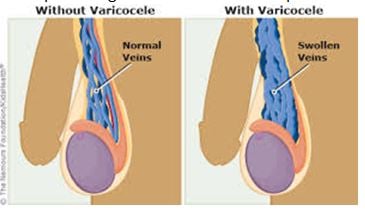
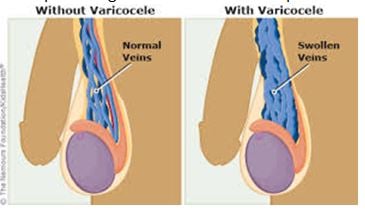
Testicular torsion
This is a medical emergency and needs to be dealt with as soon as possible. Testicular torsion occurs when a testicle rotates, twisting the spermatic cord that brings blood to the scrotum. The reduced blood flow causes sudden and often severe pain and swelling.
Testicular torsion should be suspected in case of acute pain In the testicle of males below 35 years but can occur in any age group and even in newborn babies.
Testicular torsion usually requires emergency surgery. If treated quickly, the testicle can usually be saved. But when blood flow has been cut off for too long, a testicle might become so badly damaged that it has to be removed.
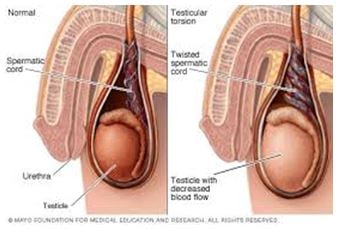
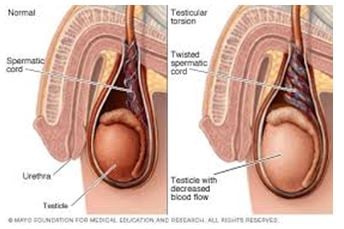
Testicular tumour
Testicular cancer occurs in the testicles (testes), which are located inside the scrotum, a loose bag of skin underneath the penis. The testicles produce male sex hormones and sperm for reproduction.
Compared with other types of cancer, testicular cancer is rare. But testicular cancer is the most common cancer in males between the ages of 15 and 35.
Testicular cancer is highly treatable, even when cancer has spread beyond the testicle. Depending on the type and stage of testicular cancer, you may receive one of several treatments, or a combination
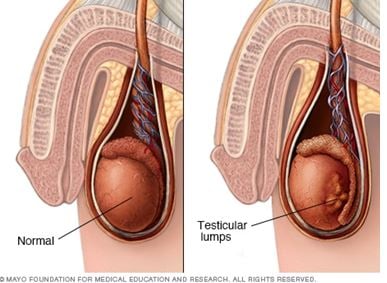

Investigations
Sometimes the doctor can determine the cause of the swelling based on the symptoms and the results of the physical examination. If the symptoms and physical examination do not reveal the cause, testing is usually needed. Often the first test is ultrasonography. Ultrasonography is done when
- Doctors are unsure of the diagnosis
- Doctors detect a hydrocele during the examination (ultrasonography may show the source of the fluid)
- Transillumination does not show fluid in the area of swelling
Depending on the results of ultrasonography, further testing may be done for cancer of a testis. Testing for testicular cancer includes blood tests and sometimes computed tomography (CT) of the abdomen, pelvis, and chest.
Treatment
The best way to treat scrotal swelling is to treat the cause of the swelling. Treatment is not always needed.
When is the Right Time to See a Urologist?
It’s advisable to consult a urologist if you experience any persistent or concerning symptoms related to your urinary tract or reproductive organs. Common reasons to see a urologist include urinary tract infections, kidney stones, blood in the urine, urinary incontinence, erectile dysfunction, infertility, and any unexplained pain in the lower abdomen or groin. If you have a family history of urological conditions or are at an age where certain issues become more common (such as prostate problems in men as they age), it’s a good idea to establish regular check-ups with a urologist.
What are Some Diagnostic Tests Recommended by Urologists?
Urologists use a variety of diagnostic tests to assess and diagnose urological conditions. These tests may include urine analysis, blood tests, imaging studies (such as ultrasound, CT scans, and MRIs), cystoscopy (using a thin tube with a camera to examine the bladder and urethra), urodynamic tests (to assess bladder function), and prostate-specific antigen (PSA) testing for prostate cancer screening.
What is the Difference Between Urology and Nephrology?
Urology and nephrology are both medical specialities that deal with the urinary system, but they focus on different aspects. Urology primarily deals with the entire urinary system, including the kidneys, bladder, ureters, and urethra, as well as male reproductive organs. Nephrology, on the other hand, specifically focuses on the kidneys and their function, including the diagnosis and treatment of kidney diseases like chronic kidney disease, kidney infections, and kidney failure.


